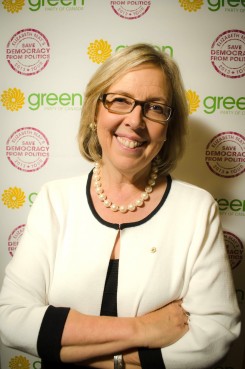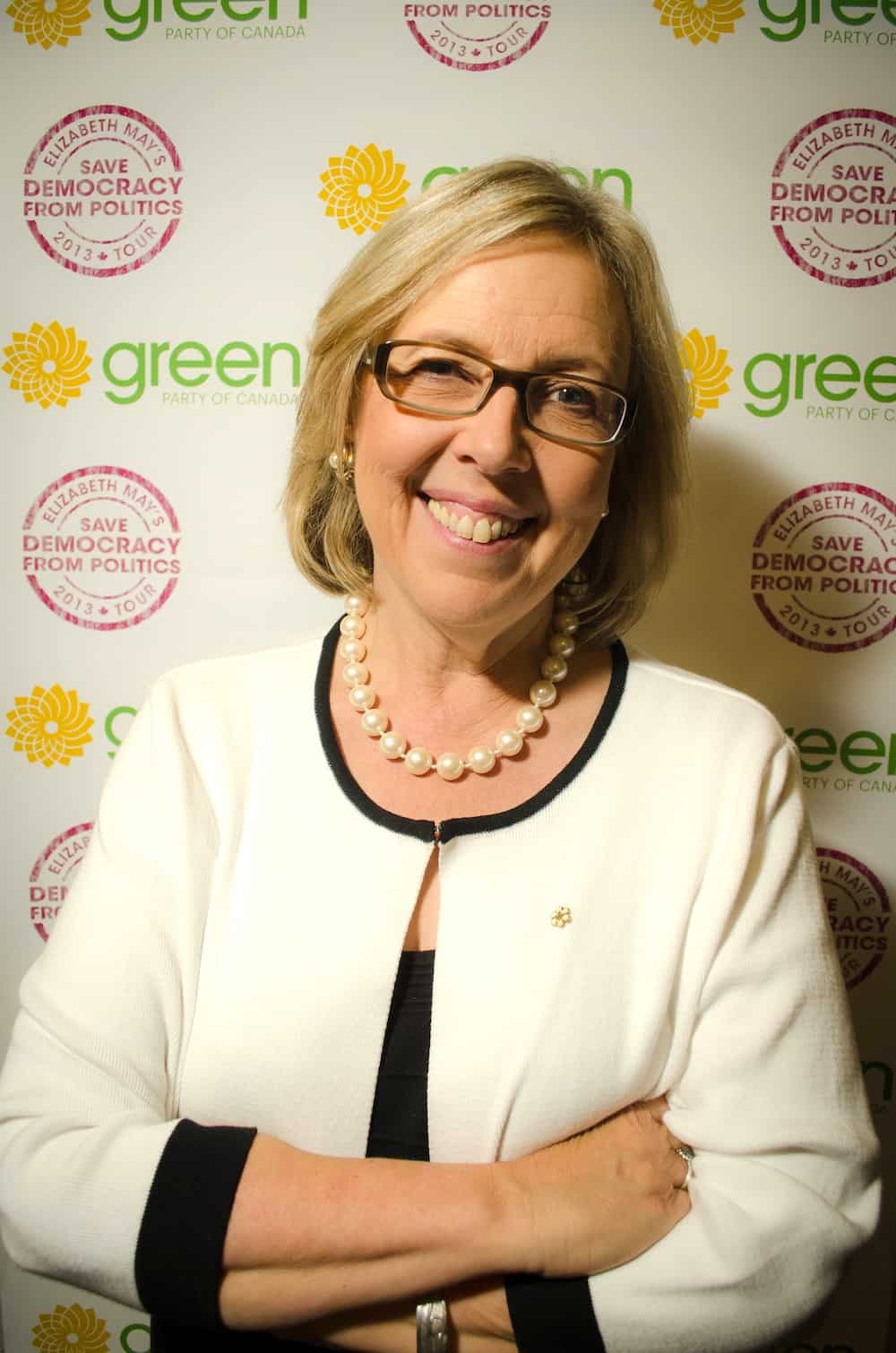Green Party leader Elizabeth May describes her vision for post-secondary education: greater financial support for universities via federal government transfers to provinces. “We need to ensure that we put an end to interest-bearing student loans, and we’ll expand bursaries and scholarships for young people,” May stated.

MICHAEL CHAHLEY/THE VARSITY
Speaking as a guest lecturer in an ENV100 class, May emphasized the importance of youth involvement: “We need one thing more than anything else, and it’s you. We need informed and engaged citizens who won’t shut up about the fact that a handful of economic bullies have decided their short-term profits are worth more than our collective future.”
When asked how the Green Party would combat youth apathy, May responded “I don’t think that youth are more apathetic than any other group in society.” While it is true that young people are among the least likely to vote, May attributes this to a disillusionment with the voting system and the “false conclusion” that “the entire system is rigged and there’s not much point in voting at all.”
“If you’re feeling disengaged and disillusioned, and angry at politicians, the most important thing to do is to vote… I think what you have to do is take the time to learn about the issues, be active in our democracy, and take the time to vote. So that’s a message to everyone, not just a message to young people,” May said.
In October, May held a town hall on democratic renewal as part of her “Save Democracy From Politics” nationwide tour. The tour was designed to give May a platform to discuss the issues of electoral reform, and what she calls “our democratic deficit.” May is an outspoken proponent of proportional representation, and wishes that political parties had never been established.
“We could have a better, healthier democracy in this country if [we could] eliminate all the political parties in this country and let Canadians vote for the MP they think most represents their interests,” May said. The Green Party includes implementation of proportional representation as part of its platform. Kelly Carmichael, executive director of Fair Vote Canada, one of the organizations behind the tour, said that the First Past the Post (FPTP) system that Canada currently has does not truly reflect the votes of the electorate. Carmichael used the results of the 2011 federal election to illustrate her point: “39 per cent of the voters that showed up gave one party 54 per cent of the seats, and 100 per cent of the power. Over 700 million votes didn’t elect anybody. This winner-takes-all, antiquated, FPTP system creates division among voters.”
The Green Party was the first federal political party to call for the legalization, regulation, and taxation of marijuana. “It’s very clear that prohibition does not work, and it takes scarce law enforcement resources and puts them in the wrong place, criminalizing people whose activities shouldn’t be criminalized,” stated May.
Two of the Green Party’s long-term national goals are to eliminate student debt entirely, and to increase accessibility to post-secondary education. Mike Schreiner, leader of the Green Party of Ontario (GPO), said “one shouldn’t detract from the other,” and hopes to achieve both through a multi-year tuition fee freeze.
To ensure that the lost revenue does not detract from university budgets, Schreiner promised: “We’d reverse the corporate tax cuts introduced by the Liberal Party… Having skilled young people entering the workforce is a huge benefit to businesses of all sizes, so it seems right that they should help pay for something that helps them.” Ontario is the province with the highest tuition fees, but the lowest public investment.
In addition to the tuition fee freeze, Schreiner would like to introduce grants that are more needs-based, instead of the current tax credit system.
Schreiner pointed out that Ontario is the province with the highest tuition fees, but with the lowest per capita spending on education. He believes that the province’s lack of commitment to education results from the mistaken view that youth are not politically engaged. “The more engaged young people are in politics, the more the policies would benefit them,” he said.
May does not believe that there is sufficient evidence that cannabis is any more of a health threat than cigarettes or alcohol, and supports findings that marijuana is beneficial when used for medical purposes, specifically as an aid for chronic pain, and other illnesses.


